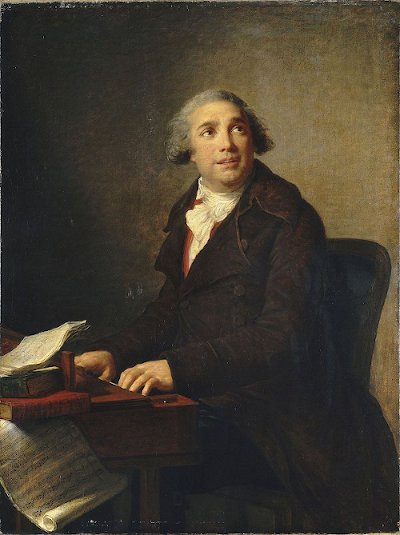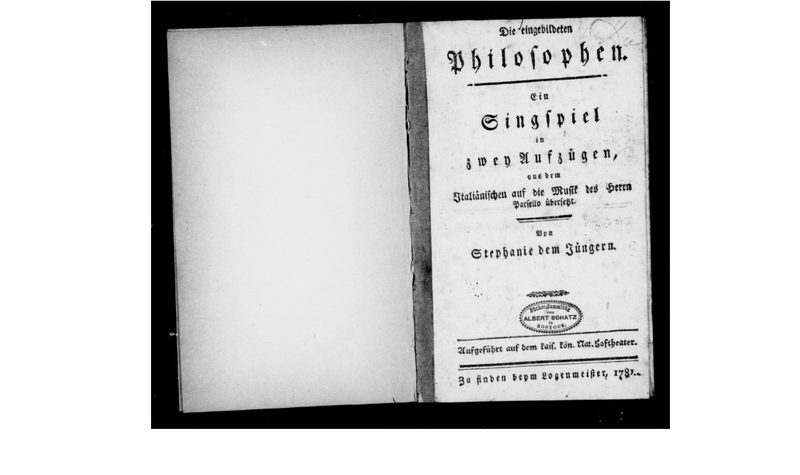Composer
Paisiello studied at the Conservatorio di S. Onofrio, Naples, where he eventually served as assistant master. He was active at St Petersburg from 1776-1784 before taking up a position with Ferdinand IV of Naples and, in 1802, moving to Paris at the invitation of Napoleon. In addition to a large number of church works, Paisiello is best remembered for his operas Nitteti (St Petersburg, 1777), Il barbiere di Siviglia, ovvero La precauzione inutile (St Petersburg, 1782), Il re Teodoro in Venezia (Vienna, 1784), La grotto di Trofonio (Naples, 1785), Le gare generose (Naples, 1786) and Nina, o sia la pazza per amore (Caserta, 1789)

Élisabeth Vigée Le Brun, Paisiello at the clavichord, 1791 (Versailles)
- Mozart Relevance
-
Mozart first met Paisiello in Italy, at Naples in May or June 1770 and at Turin in January 1771. They met in Vienna as well. On 9 June 1784 Mozart wrote to his father: 'Tomorrow Herr Ployer, the agent, is giving a concert in the country at Döbling, where Fräulein Babette [Ployer] is playing her new concerto in G [K453] and I am performing the quintet [K452]; we are then playing together the grand sonata for two pianos [K448]. I am fetching Paisiello in my carriage, as I want him to hear both my pupil and my compositions.
Paisiello figures elsewhere among Mozart’s compositional and performing activities as well. On 16 January 1782, reporting to his father on a piano duel he had played the previous month with Muzio Clementi – this at the order of Joseph II – Mozart wrote to his father:
After we had stood on ceremony long enough, the Emperor declared that Clementi ought to begin. ‘La Santa Chiesa Cattolica’, he said, Clementi being a Roman. He improvised and then played a sonata. The Emperor then turned to me: ‘Allons, fire away’. I improvised and played variations. The Grand Duchess produced some sonatas by Paisiello (wretchedly written out in his own hand), of which I had to play the allegros and Clementi the andantes and rondos.
In addition to performing variations on Paisiello’s aria ‘Salve tu, Domine’ K398 (from I filosofi immaginarii / Die eingebildeten Philosophen, performed at Vienna in 1781) at his Burgtheater concert of 23 March 1783, Mozart also composed the aria ‘Schon lacht der holde Frühling’ K580 (1789) for insertion in a mooted German-language production of Paisiello’s Il barbiere di Siviglia (Der Barbier von Sevigilia) and set text ‘Mentre ti lascio, o figlia’ K513 from Paisiello’s opera La disfatta di Dario.

Giovanni Paisiello, Title page of the libretto to Die eingebildeten Philsophen, Vienna, 1781
- Category/Role
- Composer
- Date 1
- 1740-05-09 Taranto or Roccaforzata
- Date 2
- 1816-06-05 Naples